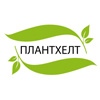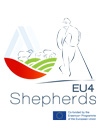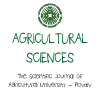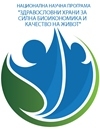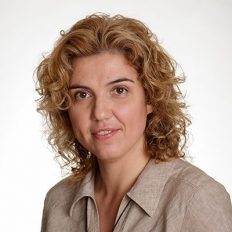Department of Crop Science
The Department of Crop Science was founded in 1946 as part of the Agronomy and Forestry Faculty at the newly opened State University in Plovdiv. In 1950, the faculty was separated into an independent higher school - Higher Agricultural Institute (VSI), and the department remained part of the Faculty of Agronomy. In 2001, VSI was transformed into an Agricultural University, and the Department of Crop Science remains the main applied department at the Faculty of Agronomy "St. Dimitar Solunski".
Heads of the department over the years have been Prof. DSc. Pavel Popov (1946–1963); Prof. DSc. Georgi Koinov (1964–1971); Prof. DSc. Yanka Yakimova (1971–1975); Prof. DSc. Georgi Koinov (1976–1984); Prof. Dr. Kiro Kostov (1984–1991); Assoc. Prof. Dr. Georgi Moskov (1991–1994); Prof. Dr. Boris Yankov (1994–1998); Assoc. Prof. Dr. Zivko Terziev (1999–2003); Prof. Dr. Ivan Yanchev (2004–2011); Prof. Dr. Radka Ivanova (2012–2020); Prof. Dr. Ivan Yanchev (2021–2024) and Prof. Dr. Hristofor Kirchev (from 2024).
The department works in three specialized directions - "Field crops", " Fodder crops" and "Breeding and seed production of domestic plants". The disciplines are taught: Field crops, cereal and leguminous crops, industrial crops, medicinal, aromatic, and flavor plants, grain production, fodder production, meadow farming, biological cultivation of field crops, grass mixtures, grain storage, tobacco production, plant genetic resources, seed production of field crops, plant breeding and applied in vitro techniques, breeding, seed production and biometrics, breeding methods to improve nutrient uptake, seed production under different feeding regimes, breeding for sustainable agriculture and plant genetic resources and resistance.
The department employs 12 teachers, including four professors, three associate professors, three Head assistants, and 2 assistants.
Over the years, teachers in the Department of Crop Science were: Prof. Pavel Popov, Prof. Georgi Koinov, Prof. Georgi Staykov, Prof. Mihail Maslinkov, Prof. Venelin Topalov, Prof. Ivan Dechev, Prof. Kiro Kostov, Prof. Dimitar Kolev, Prof. Asen Iliev, Prof. Pano Topalov, Prof. Dimitar Atanasov, Prof. Marin Pehlivanov, Prof. Diko Dekov, Prof. Hristo Koedzhikov, Prof. Yanka Yakimova, Prof. Marin Uzunov, Assoc. Prof. Stanka Kalaidzhieva, Head Assistant Vera Kalbova, Assoc. Prof. Georgi Parushkov, Assoc. Prof. Radka Dimova, Head Assistant Dr. Radi Radnev, Assoc. Prof. Sevdalina Stoyanova, Assoc. Prof. Ivan Dimitrov, Head assistant Nikola Burkalov, Assoc. Prof. Valcho Zhelyazkov, Head assistant Kirilka Slavcheva, Head assistant Nikola Petkov, Assoc. Prof. Georgi Moskov, Prof. Boris Yankov, Prof. Hristina Yancheva, Prof. Radka Ivanova, Assoc. Prof. Zhivko Terziev, Prof. Ivan Yanchev, Prof. Tanko Kolev.
For conducting practical classes, the department has 4 classrooms equipped with multimedia and equipment for various analyses. The lecture courses are held in auditoriums, located in the building of the Faculty of Agronomy.
The Department of Crop Science maintains a study assortment of 9 da in the area of the Agricultural University, on which all studied field and fodder crops and varieties intended for the educational process and practical training of students are grown.
Outside the University, on Yagodovsko shosse str., the department has an experimental field with a building fund for scientific activity. According to the scientific interests of the teachers, field experiments are conducted annually. Depending on the required scale, the area used by the department varies from 10 to 25 da. In addition to scientific work, the field base is also used for bringing out practices and developing graduate thesis for students.
Head of Department
Members

Professor Nurettin Tahsin PhD
- Phone: +359 32 654 374
- E-mail: ntt@au-plovdiv.bg

Assistant Professor Georgi Stanchev
- Phone: 032 654
- E-mail: joro_stanchev@abv.bg
Administration
Veneta Zaharieva
- Phone: +359 32 654 379
- E-mail: v_zaharieva@au-plovdiv.bg
 - Events on the occasion of the 80th anniversary of AU
- Events on the occasion of the 80th anniversary of AU
